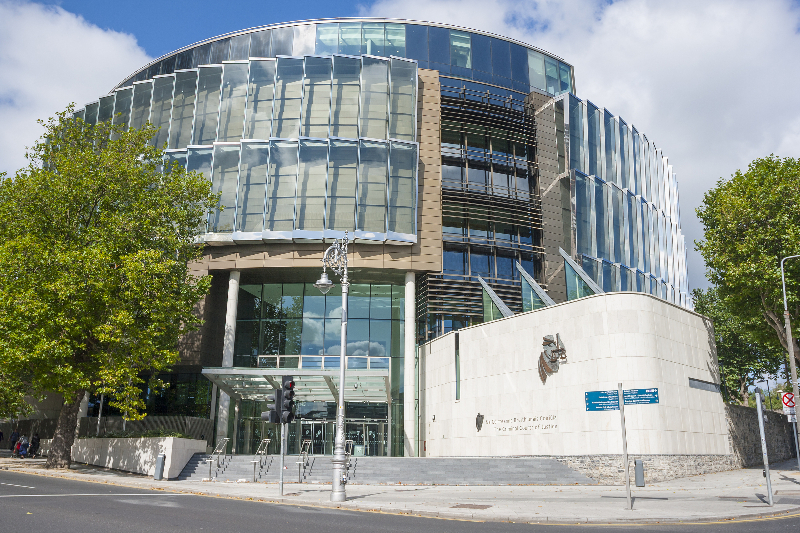College student convicted after buying drugs on “dark web”
Padraig Conlon 10 Dec 2021
By Brion Hoban
A college student who imported cannabis from the United States after purchasing it online using the “dark web” will be discharged from the indictment if he meets certain conditions.
Harry O’Brien (22) told gardaí he intended to smoke or bake the more than €4,000 of cannabis and admitted to ordering drugs online on three previous occasions, but denied being a drug dealer.
Dublin Circuit Criminal Court heard that O’Brien’s mental state was “a little precarious” at the time, but things have gotten “back on track” for him since and he has gone on to found a disabled students’ advocacy group.
O’Brien of Fernwalk, Greenfields, Ballincollig, Cork, pleaded guilty to the importation of cannabis at Trinity Halls, Dartry Road, Rathmines, on March 13, 2019.
He also pleaded guilty to possession of cannabis and Ketamine for sale or supply at the same address on the same date. He has no previous convictions.
At a previous sentencing hearing, Judge Melanie Greally indicated she was “not completely opposed” to imposing section 100 of the Criminal Justice Act 2006. This section allows the court to impose a fine and defer the passing of a sentence of imprisonment for the offence.
Yesterday, Judge Greally said she intended to impose section 100 due to the fact that O’Brien “is a very young man” with no previous convictions who has “enormous potential” in terms of his future opportunities which would be severely restricted by his having a conviction.
The judge said it was clear from the evidence that the offending coincided with a particularly low point in his life and an overall deterioration of his well-being, which led to heavy use of cannabis.
She said that since his detection, O’Brien has affected “a very impressive turn around in terms of his own circumstances”. She said he has “overcome his dependency on cannabis and excelled academically”.
Judge Greally set an indicative sentence of 16 months imprisonment, but said she would defer the imposition on condition that O’Brien pay a €500 fine, carry out voluntary work for St Vincent de Paul for three months and keep the peace and be of good behaviour during the adjourned period.
She that in the event that all conditions are complied with she would discharge O’Brien from the indictment and adjourned the matter to March 21, 2022.
At a previous hearing in November, Detective Garda Eamonn Murphy told Grainne O’Neill BL, prosecuting, that a worker from An Post selected a package sent from California to the accused’s then address for further inspection and found it contained cannabis with a value of €4,426.
Det Gda Murphy said gardaí subsequently searched O’Brien’s then address and found further drugs, including Ketamine worth €1,000 and a further small amount of cannabis.
In interview with gardaí, O’Brien said he had recently ordered drugs online using the “dark web”, paying €1,100. He said he had ordered drugs online on three previous occasions and paid using a cryptocurrency.
O’Brien told gardaí that he had intended to smoke or bake the cannabis he ordered. He said he was a drug addict, having first taken drugs aged 11, but denied being a drug dealer.
The judge previously adjourned the matter to allow for the canvassing of charitable organisations and for a proposal to then be put to the court regarding a suitable entity that could benefit from O’Brien’s experience and skill-set.
Det Gda Murphy agreed with Pieter Le Vert BL, defending, that his client took responsibility for importing the drugs and said he was not going to sell them, but admitted he would give some to his friends.
The detective agreed with counsel that his client was “not in a particularly good way” when he first met with him and his mental state at the time was “a little precarious”. He agreed there has been improvement since and O’Brien is “almost like a different person now”.
Det Gda Murphy said he thinks O’Brien has learnt his lesson and will not come before the courts again.
Mr Le Vert said his client found his first year in college “very difficult”, stopped attending lectures and became “very withdrawn”. He said there was a marked change in his client’s personality and he pushed friends away.
Counsel said that after his client was caught by gardaí, he attended therapy and things began to get “back on track” for him. He said his client almost “flunked” his first year in college, but in his third year he received first class honours.
He said his client volunteers with the college disability service and founded a disabled students’ advocacy group, which is now the largest such group in the country. He said his client wants to join the army and has taken steps to do so.
Mr Le Vert asked the court to consider imposing section 100 of the Criminal Justice Act 2006. He said the question is that given what this man “demonstrably has to give”, should he be curtailed by the recording of a conviction for an offence he committed when he was 19 year’s old.











